Every seven years, the EU sets its long-term budget – the Multiannual Financial Framework (MFF) – deciding how to raise and spend over a trillion euros. The process for the 2028–2034 MFF has now begun, with the EU needing to balance new priorities like security, Ukraine’s recovery, green and digital goals, and post-COVID debt, all while uniting 27 member states.
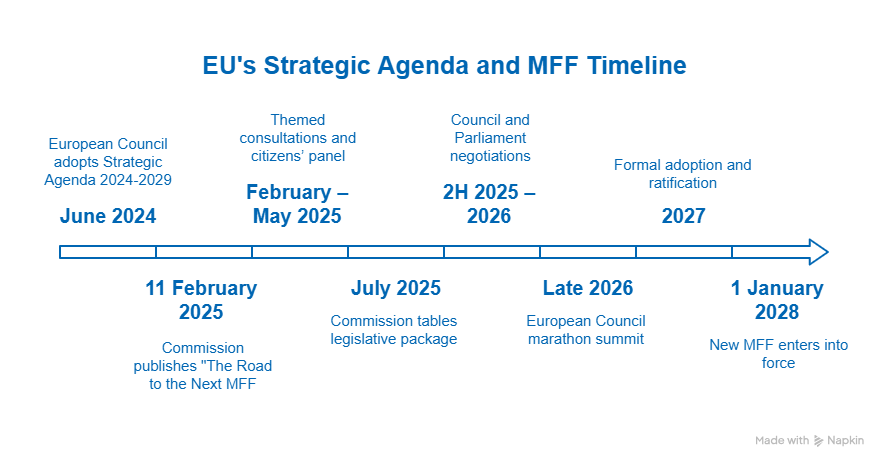
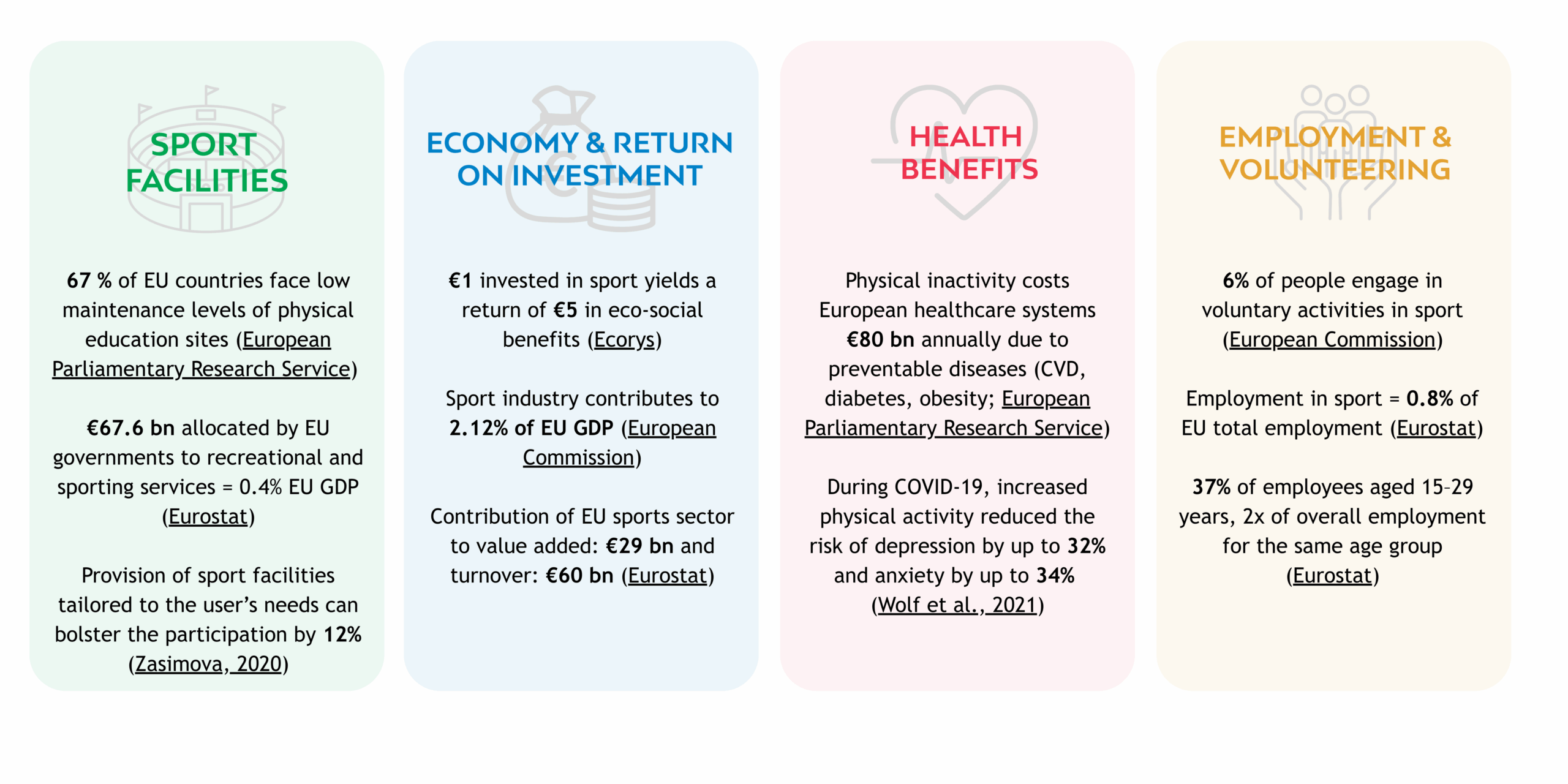
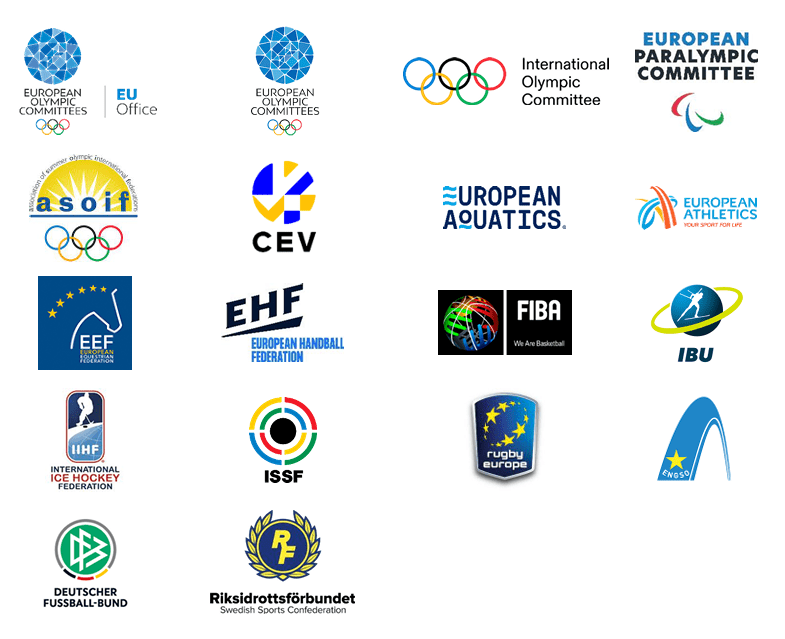
The EU’s budget for the Multiannual Financial Framework (MFF) 2021-2027 is set at €1.211 trillion, averaging at around €173 billion per year. Accordingly, the European Commission’s Political Guidelines for the legislative session 2019-2024 focus on six thematic headlines:
These priorities manifest themselves through a number of different policy areas, targets, actions, and impacts (including on the sport sector), and are supported through specific funding programmes. Accordingly, the available funding programmes address relevant policy fields through the establishment of more than 40 different programmes supporting Member States and ad-hoc third countries associated with the specific programmes to develop and implement EU and national policies.
Managed by: European Education and Culture Executive Agency
Managed by: European Education and Culture Executive Agency
Managed by: European Education and Culture Executive Agency
Managed by: National Agencies
Managed by: Managing Authorities
Managed by: Managing Authorities
Managed by: Managing Authorities
Managed by: European Health and Digital Executive Agency
Managed by: Directorate General for Justice and Consumers
Managed by: Responsible Executive Agency depends on the specific policy field.
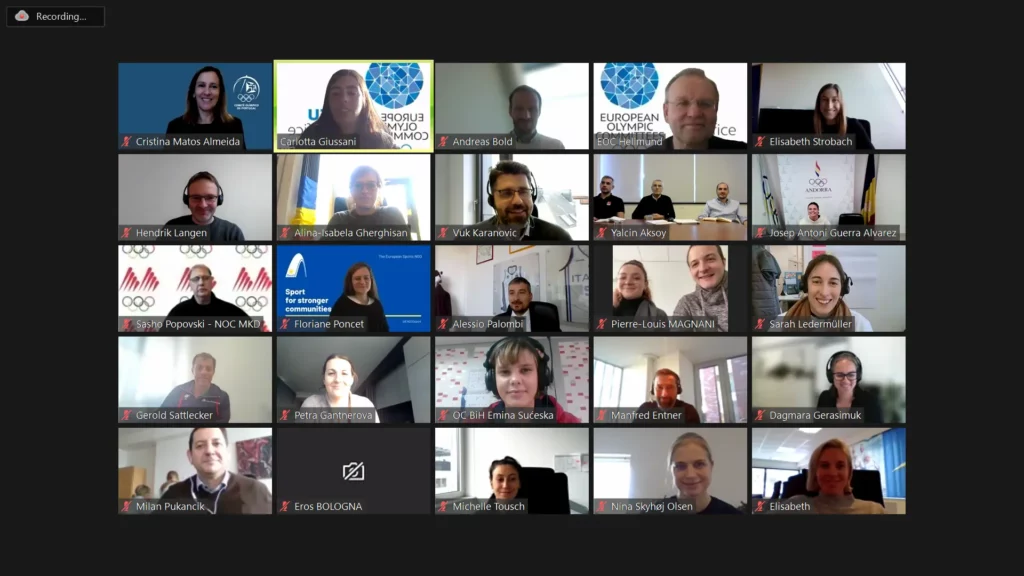
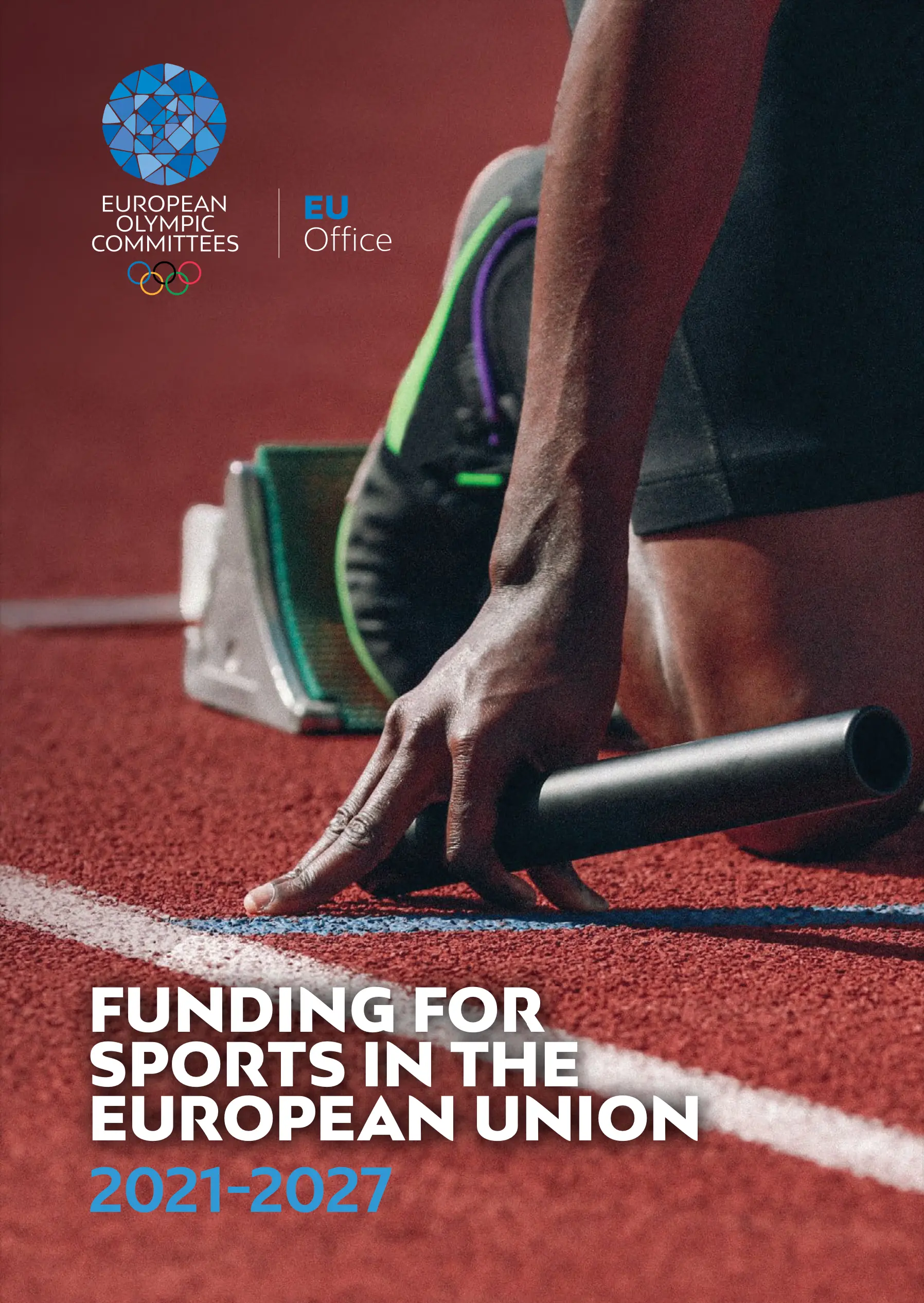
The EOC EU Office published the third edition of its Funding Brochure namely “Funding for Sport in the European Union 2021-2027” in October 2021. The Funding Brochure provides key information, identifies relevant sources of funding opportunities and contains practical tips on how to approach the different stages of a project cycle: from project idea to the real management and implementation of an EU project. Accordingly, it provides a range of examples of projects that were successfully financed by the European Union in previous years. Hence, the Funding Brochure aimed to be a timely and concrete guide to assist European National Olympic Committees (ENOCs) and sport federations in understanding the available opportunities under the Multiannual Financial Framework 2021-2027.
The EOC EU Office brochure "Funding for Sport in the European Union 2021-2027" is designed to support European NOCs and therefore is exclusively available to European NOCs and EOC EU Office partners. For more information, please contact us at info@euoffice.eurolympic.org